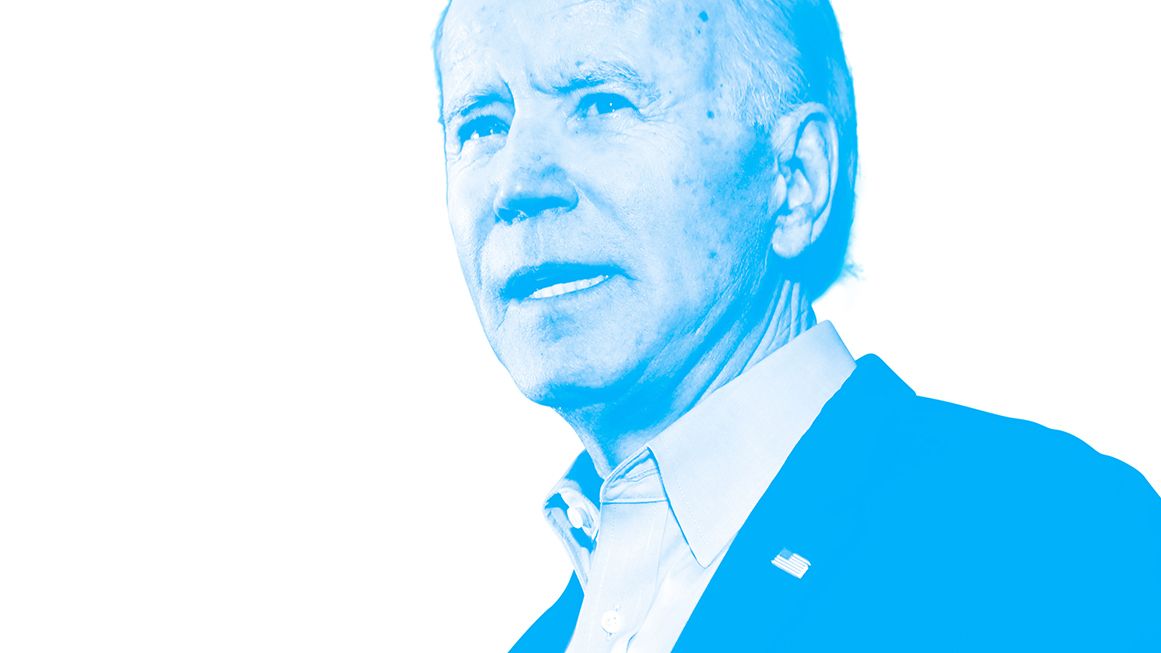Biden's Transformation From a Dove to a Hawk
From Afghanistan to Ukraine to Israel, Biden's was a presidency defined by contradictions on peace and interventionism.

In the January 2025 issue of Reason, we're giving performance reviews of Joe Biden's presidency. Click here to read the other entries.
President Joe Biden came to office promising to end "forever war," and that's the promise that could have been the easiest to fulfill. When it comes to war and peace, the U.S. president is more powerful than anyone else on earth. His promise was put to the test with the Taliban resurgence in Afghanistan, the Russian invasion of Ukraine, and the October 7, 2023, attacks on Israel. With each crisis, Biden seems to have grown more hawkish, embroiling the United States deeper in foreign wars.
Biden's most courageous foreign policy decision was also the one he received the most political punishment for. By the early 2020s, the war in Afghanistan had become unwinnable without a major escalation by U.S. forces. Biden, like his predecessor (and successor) Donald Trump, decided to cut America's losses. He followed through with Trump's agreement to withdraw U.S. military advisers from the country.
The fall of the Afghan republic caused a heartbreaking refugee crisis, and postwar U.S. sanctions on Afghanistan nearly led to famine. Biden deserves criticism for failing to prepare for the humanitarian consequences of withdrawal. But continuing the war would have meant death and suffering on a far greater scale. The fall of Saigon in 1975 came after months of Vietnam War combat that killed tens of thousands. In avoiding a similar outcome, Biden's courage was commendable.
It is hard to grade Biden's performance in Ukraine, because much depends on the outcome of the war—whether U.S. aid wins Ukraine better peace terms than what Russia was offering at the beginning. Much of the crisis has been outside the U.S. president's hands. Russian leader Vladimir Putin, of course, made the fateful decision to invade his neighbor. Eastern European states have been the most eager to use Ukraine as a weapon against Russia.
But a few things are clear: Biden's inner circle includes hawks who ignored the warning signs that U.S. entrenchment in Eastern Europe would provoke a violent Russian reaction. Once that violence came, Biden himself was able to resist the dangerous calls to escalate, and he has kept U.S. forces out. At the same time, he supplied and encouraged a failed Ukrainian counteroffensive in 2023. For better or for worse, Biden's Ukraine strategy has been consistent with the past few decades of U.S. policy.
When it comes to Middle Eastern politics, Biden lives in fantasyland. Instead of trying to extract the United States from conflicts, he has spent his entire administration chasing a U.S.-Saudi-Israeli alliance against Iran, tying American power and prestige to unstable actors. A big explosion was bound to happen. Perhaps the only surprise is that this explosion came out of the Israeli-Palestinian conflict, which had been relatively low-intensity before.
Biden's "ironclad" military support for Israel after the October 7 attacks has enabled massive bloodshed and an expansion of the war into Lebanon and Yemen.
Meanwhile, it turns out Saudi Arabia doesn't want to be Washington's loyal policeman in the region; instead, Saudi leaders have been cutting side deals with Tehran and Washington alike. Biden's approach to the region has been both morally and strategically disastrous.
Foreign policy performance review: strong start, weak finish
This article originally appeared in print under the headline "From Dove to Hawk."


Show Comments (55)